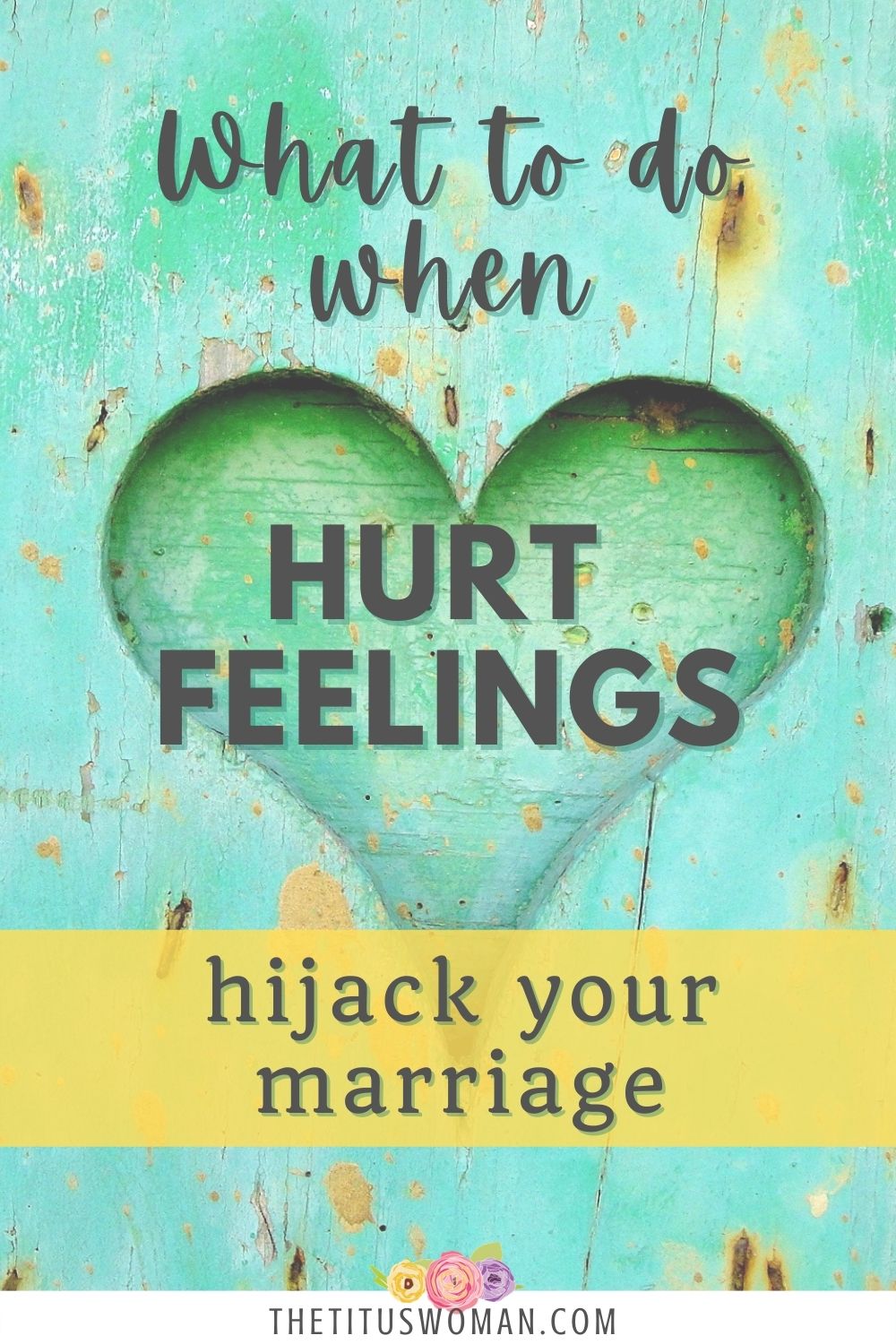As my husband turned to go, I knew I should stop him. But my hurt feelings wouldn’t let me.
The words we’d spoken to each other just moments before still hung in the air, and neither of us had been willing to offer an apology.
He quietly closed the door behind him, got into his car, and left for work.
As hot tears pushed their way down my cheeks, I re-played the morning.
We’d started our day with hot cups of coffee and a warm plate of my homemade monkey bread (get my recipe ⇓). The morning had been filled with light-hearted conversation that included our future plans, house remodeling, and the kids. We’d laughed, bantered, and dreamed together like we always do.
Then, out of nowhere, he said something that sounded hurtful. He was frustrated about something he couldn’t fix, but I heard the words and took them personally. They stung. And then―with a knee-jerk reaction―I retaliated with cutting words of my own.
Suddenly, the camaraderie we’d shared all morning was broken, and neither of us would take back what we’d said. So, he left in silence.
After nearly forty years of marriage, my husband and I still have moments that hijack us.
In the most joyous season of our lives, we’re still not immune to a misunderstanding or miscommunication that blindsides us and leaves at least one of us with hurt feelings.
Normally we find ourselves reeling. How did we go so quickly from not wanting to be apart to not wanting to be in the same room together?
Inevitably, when those moments happen, my mind spirals so quickly I barely recognize my own reckless thoughts. When my feelings are hurt, almost instantly I feel protective walls shoot up around my heart. And suddenly it seems like a great idea to pack a bag and move to Belize:)
HOW TO GET OVER HURT FEELINGS FROM YOUR HUSBAND
“Whatever is true, whatever is honorable, whatever is just, whatever is pure, whatever is lovely, whatever is commendable—if there is any moral excellence and if there is any praise—dwell on these things.”
I stood alone in the kitchen and reminded myself of all the reasons I love my husband. How he makes me laugh, the way he tears up over a heartwarming movie, the tender way he loves his daughters, his enthusiasm for making and fixing things to make my life easier, and his unending professions of love for me.
I made myself recall his gestures of love—like the notes he leaves at the coffee pot and the Sugar Daddy’s he buys just because I loved them when I was 17.

I also reminded myself of all the reasons he’s won my respect. His stellar work ethic, his insistence on striving for excellence because “anything worth doing is worth doing right,” his honesty and dependability, and the way he patiently teaches a grandson or son-in-law how to hunt or build or work on cars.
My husband hadn’t been on the road long before he called. We talked about the words neither of us meant to say. Then, we both said “I’m sorry.”
But long before his apology was spoken, the offensive words had lost their sting.
Once I filled my mind with thoughts that were good and praiseworthy, my hurt feelings took a back seat.
When you disarm the power of hurtful words spoken carelessly, you become less defensive, less argumentative, and far less willing to punish or seek revenge. Instead, with your feelings at bay, you can think through the situation more clearly.
That’s when you’re in the best position to know how to get over hurt feelings from your husband. Not when you’re reeling with hurt feelings, but when you’re wanting the best for your spouse. At that point you’re most likely to want to do whatever it takes to reconcile.
When someone you care about—a spouse, a friend, a family member—carelessly says or does something that leaves you feeling hurt, angry or frustrated, try my recipe for reconciliation.
1. Intentionally fill your mind with what is good and true and respectable about him.
Keep thinking those things. Make a list if you need to. Then, see if those hurtful words begin to lose their power over you.
2. Let down your guard and make amends.
That doesn’t mean you should dismiss the hurtful words . Instead, use them to help you explore what caused a rift in the relationship to begin with.
3. Maybe you need to tell the truth in love.
Maybe the two of you need to have some long, hard conversations about what really triggered the hurtful words. When feelings are easily hurt, there’s probably a deeper emotion lingering under the surface. For us, I asked why he was feeling frustrated (it had little to do with the conversation at hand) and admitted why I was feeling defensive.
Sometimes we hold back the truth because we don’t want to hurt the other person. But all the while our unwillingness to be truthful is harming the relationship and thereby hurting each other anyway. Although the truth can be hard to speak, when spoken in love it can be the most helpful thing we do.
4. If all else fails, consider seeing a professional counselor.
There’s a difference between words that hurt because they’re spoken carelessly and words intended to cause harm. A professional can help you evaluate whether there’s a deeper problem. Or, she may be able to help you unravel feelings you don’t know how to put your finger on.
When it comes to my husband, more often than not I’m the one who owes an apology. But saying I’m sorry comes a lot easier once I’ve reminded myself that I’m apologizing to the person I love and respect more than any other single man on the face of this earth.

You’ll find my monkey bread recipe in my free resource library! Happy eating!







Thank you!
Great job Cindy—- as usual
Thanks so much, Joette.
That’s right on, Cindy!
Thanks, Doris. I appreciate the encouragement!
That hit home.
I’m right there with you:)
I love reading your blog posts! Everytime, it’s exactly what I need to hear! Thank you
Amber, that means the world to me! Thank you!